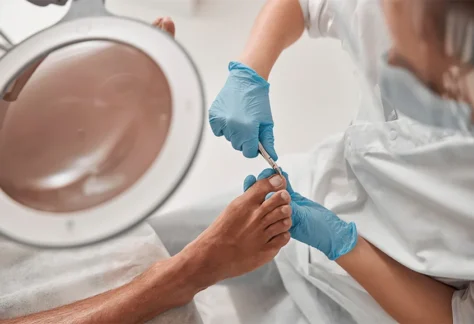In This Article:
- As of May 2020, Arizona hospitals are now permitting elective surgeries. An elective surgery is any surgery you schedule in advance.
- Hospitals are prioritizing people with life-threatening surgeries, so don’t expect to have a minor procedure right away. The date of your surgery will depend on how severely your condition is affecting your quality of life.
- To prevent the spread of COVID-19 in a hospital, elective surgery patients must test negative for coronavirus. You will recover in an area of the hospital that is far from COVID patients.
For over a month now, Arizonans have had to adjust to new routines under our state’s shelter-in-place order. With closures and postponements becoming the norm, many people have had to reschedule important events – including some surgeries and important medical procedures.
Elective surgeries were put on pause for a while in an effort to protect patients from coming into hospitals and health facilities where the risk of contracting COVID-19 was higher. These surgeries were also put on pause in an effort to make sure there were more than enough hospital resources (such as beds, doctors and medical equipment) to take care of large numbers of COVID-19 patients.
Now that Arizona’s case numbers have begun slowly declining, and our hospitals are finding more resources to treat COVID-19 patients, you may be able to schedule (or reschedule) an elective surgery for yourself or a loved one.
What are elective surgeries?
An elective surgery is simply any surgery that is scheduled in advance, as opposed to a non-elective surgery, which may be performed as a life-saving measure in an emergency situation. Elective surgeries aren’t always optional, but the patient and doctor can choose when it is performed.
Elective surgeries can range from critical procedures (such as cancer treatments) to cosmetic procedures (such as plastic surgery for purely aesthetic purposes).
How soon can I expect to schedule my elective surgery?
Your surgery date will depend on the type of procedure you’re having, your current health condition, and the urgency of your need. Your doctor will work with you to determine this, but generally speaking, you shouldn’t expect to undergo minor surgery right away.
People with life-threatening and/or debilitating conditions will be prioritized, since hospitals still have limited resources to work with. These include individuals with cancer, heart issues and other serious illnesses.
The date of your surgery will also depend on how much your condition is affecting your quality of life. For instance, if you have a hernia, but are still able to go about your daily tasks with minimal pain, you may have to wait a bit longer than someone whose hernia is causing severe, chronic pain.
If your surgery was postponed due to COVID-19, your doctor should be contacting you soon to check in and talk about your options for rescheduling.
What is my risk of contracting COVID-19 while I’m in the hospital for surgery?
Whether you’re a visitor or a patient, coming into the hospital at this time is a bit riskier than normal. But you and your loved ones can rest assured that your health and safety is in good hands at Valleywise Health. We’re taking extra precautions to reduce everybody’s exposure to COVID-19.
Every patient who comes in for a surgical procedure will be tested for COVID-19 two to three days before they go into surgery, even if they’re not showing any symptoms. These individuals will then be asked to fully isolate themselves between the time they’re tested and the date of their surgery. Additionally, patients recovering from surgery will be kept far away from parts of the hospital where people are being treated for COVID-19.
Ultimately, your doctor will make the decision as to when you can and should safely schedule your surgery. If you are over a certain age or are immunocompromised, your doctor may want to hold off on surgery a little longer, and instead recommend alternative treatments.
If you have any questions about elective surgeries or COVID-19, Valleywise Health is here to help. Call 1 (833) VLLYWSE or visit ValleywiseHealth.org to book a telehealth appointment or learn more about how we’re ensuring all patients are safe and healthy, no matter what.







